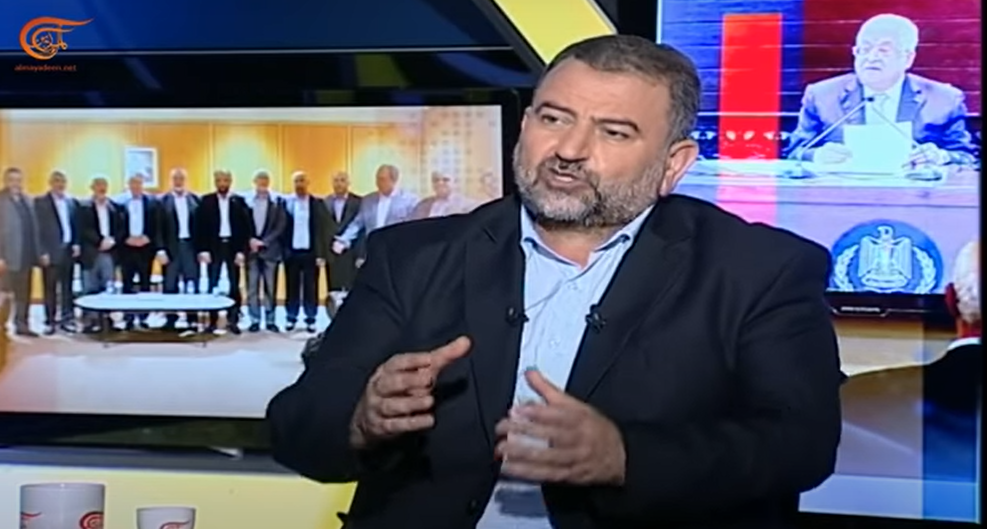On July 7th, the military wing leader of Hamas in Judea and Samaria, Saleh al-Arouri, announced the launch of an official campaign against the settlements in the West Bank, following a security escalation.
Hamas aims to engage in a war of attrition against the settlements and settlers through terrorist attacks and infrastructure damage across Judea and Samaria.
In interviews with several Palestinian media outlets, Saleh al-Arouri stated, “The Palestinians must initiate a battle against the settlements in the West Bank. We can defeat them by striking the settlements, hitting the occupation, damaging their infrastructure, and targeting them everywhere, causing them to lose security across the West Bank.”
Al-Arouri’s statement came after the recent attack on the Kdumim settlement in Samaria, carried out by terrorist Ahmed Yassin Reitan from the village of Kibya. The attack resulted in the death of an IDF soldier, and it followed the IDF operation in the Jenin refugee camp.
Hamas sources claim that the attacker was a member of the organization’s military wing, sent to target the Kdumim settlement due to Finance Minister Bezalel Smotrich residing there, with the intention of undermining Israel’s settlement enterprise.
The Kdumim attack followed another assault on June 20th, in which two Hamas military wing operatives, Mohand Shahada and Khaled Sabah from the village of Ourif, shot and killed four Israeli civilians in the Eli settlements.
The attack was well-planned, with instructions given by Saleh al-Arouri as part of the campaign against the settlements.
After the attacks in Eli and Kdumim, Hamas’s military wing officially claimed responsibility. This step is highly unusual, as the group typically maintains secrecy and does not acknowledge attacks in Judea and Samaria.
Hamas believes that the IDF’s presence in the territories of Judea and Samaria, especially in northern Samaria, is weakening. This perception has led them to ignite an armed intifada throughout the entire West Bank, focusing on increased terrorist activities against the settlements.
Their aim is to halt further construction and compel settlers to relocate within the Green Line.
In recent times, Hamas has faced tough competition from the Islamic Jihad organization, particularly because the it did not participate in the “Shield and Arrow” operation against Israel in the Gaza Strip.
Additionally, the Islamic Jihad has gained popularity on the Palestinian street, given its leading role in establishing armed groups in northern Samaria over the past two years.
These developments have strained relations between Hamas and the Palestinian Authority, which is currently on the verge of collapse.
Iran supports and arms both the Islamic Jihad and Hamas, with the aim of gaining control over Judea and Samaria and opening another front against Israel.
Senior delegations from Hamas and the Islamic Jihad recently visited Tehran, meeting with Supreme Leader Ali Khamenei and the commanders of the Revolutionary Guards to coordinate continued security escalation in the West Bank territories.
Saleh al-Arouri, the head of the military wing in the West Bank and the contact person for Hezbollah and Iran, is the mastermind behind Hamas’s attack strategy.
He also recruits Palestinians for attacks within Israeli territory. For instance, the recent terror attack in Ramat Hachayal, Tel Aviv, was carried out by a Hamas operative named Abd Alwahhab Khalaila from the village of Samua in the Hebron area.
Israeli intelligence has been targeting Saleh al-Arouri for some time, but they have yet to exact a price from the Hamas leadership in the Gaza Strip, which also operates terrorist cells in Judea and Samaria, along with a venomous incitement system through the media and social networks.
Last week, five rockets were fired from the Gaza Strip towards Israel after IDF forces left the Jenin refugee camp. The IDF responded by attacking Hamas targets in the Gaza Strip. However, such actions have not deterred the Hamas movement from continuing its terrorist activities in the West Bank.
Within the Israeli security establishment, voices advocating for a change in strategy toward Hamas are growing louder.
There is a call to impose a cost on Hamas in the Gaza Strip, especially considering its efforts to overthrow the Palestinian Authority government.
As tensions rise between Hamas and the Palestinian Authority, Hamas operatives in the Jenin refugee camp expelled three senior members of the Fatah movement, namely Mahmoud al-Aloul, Azzam al-Ahmed, and Tawfiq al-Tirawi, who had come to attend the funerals of terrorists killed during the IDF operation. They referred to them as “traitors” and “agents of Israel.”
The PA accuses Hamas of attempting to undermine its rule in the West Bank, fostering division that could lead to civil war.
In response to these tensions, groups of militants from the Fatah movement took to the streets of Palestinian cities in the West Bank last weekend, demonstrating their support for Chairman Mahmoud Abbas and expressing loyalty to him through processions and celebratory gunfire.
While the political echelon in Israel plans to provide financial relief to strengthen the Palestinian Authority, it is recognized that this alone will not be sufficient. Operations on the ground against Hamas infrastructure in Judea and Samaria are necessary to weaken the group. Such efforts would support both the Palestinian Authority and Israel.
It is important for Israel to target not only Hamas’s terrorist activities but also its social movement aspect. Severe damage to its civilian infrastructure in Judea and Samaria and the arrest of its operatives in areas not under PA control will be crucial steps in countering Hamas effectively.




